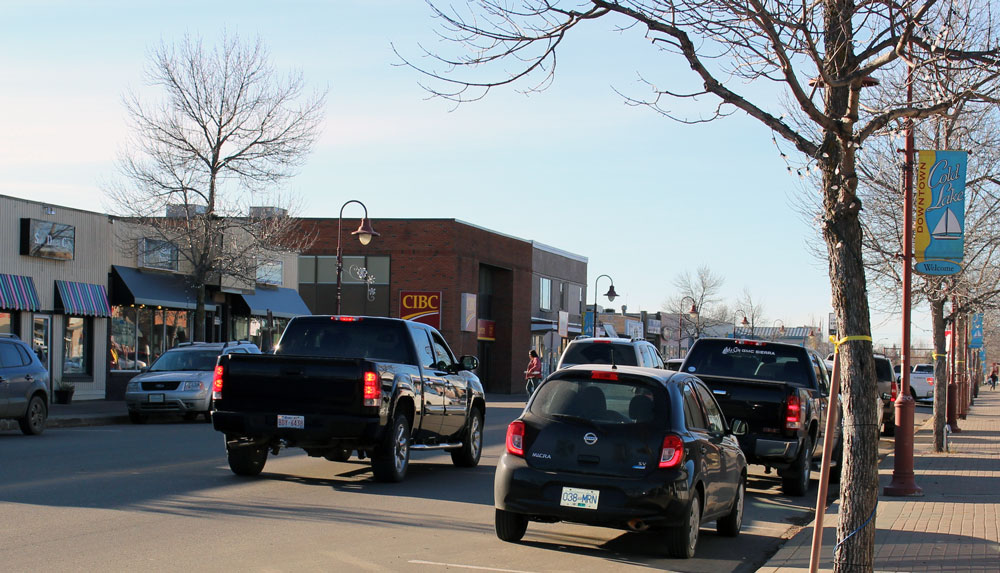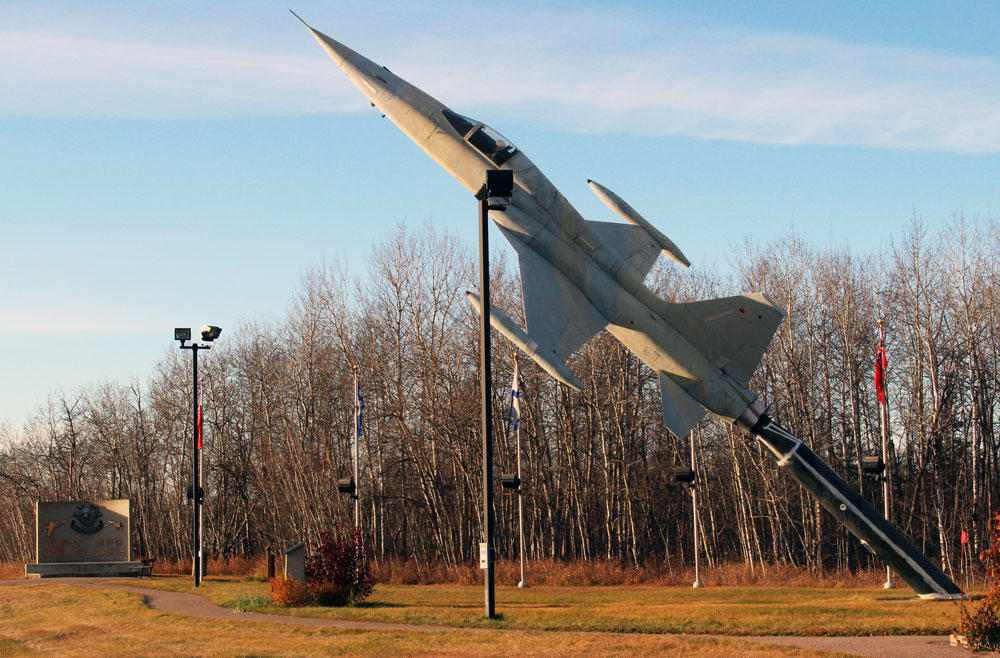Despite the recent economic downturn in Alberta, people are confident that Cold Lake will continue to grow. Ask residents what’s great about their community and they’ll mention the prosperity brought by the oilsands, but they’ll also talk about the beautiful lake and the family-oriented environment.
Cold Lake is a wonderful place to live whether it’s booming or not, they say.
Cold Lake’s growing pains seem to have levelled off because the city has caught up, but also because pressure from the oil industry has been alleviated by the price decline.
The housing market has improved since the 2012 heyday. The City of Cold Lake’s rental incentive program brought hundreds of new rental units onto the market and developers crowding the market with new builds has reduced the price of a single family home.
But Cold Lake still has only a handful of affordable housing units and space for seniors will become a problem for a community that still relies largely on market forces to manage its housing stock. City council would be smart to create a policy for developing more affordable housing in Cold Lake. They should offer financial incentives to housing developers or non-profits to build affordable homes for purchase. City council should also offer financial incentives to build seniors’ housing.

Downtown Cold Lake is a busy spot and local residents expect it stay that way through the oil downturn.
The doctor shortage is such a chronic problem that health care workers regard it as something to be managed rather than solved. Alberta Health Services and local health leaders have a different picture of what the health care needs are in a community that serves thousands more people than its official population suggests. The primary care network and walk-in clinic operating out of the hospital provide health care to transient workers and permanent residents without a family doctor, taking pressure off the emergency room. A key struggle for this community will be to continue to attract new doctors and nurses when the current ones inevitably move on to the city or retire.
Alberta Health Services needs to better allocate resources if it can’t increase funding to northeast Alberta health care centres. Do Bonnyville and Cold Lake both need a hospital? The two communities are 30 minutes apart and perhaps a smaller clinic could be maintained in one community with the hospital situated in the other.
The city’s hospitality and service labour shortage is likely to persist even through the oil downtown. Oil workers don’t tend to be from Cold Lake but if they are, they are more likely to move on to work elsewhere than pick up a shift as a line cook. Yet the restaurants and hotels remain open and someone will need to work the shifts.
The April 1 deadline has passed for many of Canada’s temporary foreign workers to go home, leaving employers without access to willing workers. There is a political chill toward hiring foreign workers as the federal government reforms the program, and Alberta’s small business owners will suffer the consequences. The federal government should seriously consider a regional exemption to the reforms for northeast Alberta to provide the region with much-needed workers.
Tax revenues from the Cold Lake Air Weapons Range has provided city officials with the dollars needed to begin to dig the city out of a $150 million infrastructure deficit. But other municipalities are bidding for a piece of the deal and the oil downturn inevitably means that the land will return fewer revenues to the city in 2016. It remains to be seen how these developments will affect Cold Lake’s bottom line in the future.

People will continue to move to Cold Lake to work at the airforce base for years to come. They’ll want affordable housing and a liveable cit
A complicating factor is that Cold Lake looks poised for a change of leadership. Mayor Craig Copeland recently won the Progressive Conservative nomination for Bonnyville-Cold Lake to succeed retiring MLA Genia Leskiw.
Although the Wildrose Party is a worthy opponent in this part of Alberta, Copeland has an established track record of guiding Cold Lake through its toughest years and stands a strong chance of winning the seat this spring.
However, if Copeland is elected to the provincial legislature, that may give Cold Lake a stronger representative in Edmonton than it has seen in many years. He could be — and should be — a strong advocate for the community in ensuring that it continues to receive tax revenues from the weapons range and transfer payments from the provincial government for major infrastructure projects.
Coun. Bob Buckle has also said that he will retire after this term. He leaves office after 10 years as one of Cold Lake’s most prominent and active members of city council.
With changes likely coming to Cold Lake’s municipal leadership, it is especially important that the provincial government do more to manage the chronic growth problems plaguing many of its small communities — Cold Lake is an example of a widespread problem in Alberta. Better fiscal planning for oil price downturns would be a first step. Developing more transparent plans and processes for infrastructure projects would also be wise; the Comprehensive Regional Infrastructure Sustainability Plan for Cold Lake is merely a set of suggestions, with no concrete projections or funding commitments. Alberta also needs to seriously think about how it allocates resources for health care delivery and better engage the federal government on the issue of temporary foreign workers.
Regardless of whether oil prices rise again and bring new development, Cold Lake will always be home to the military base and a retail and business focal point for northeast Alberta. There are also still thousands of oil workers in the area working on current projects. Local leaders will need to ensure that it is a livable community and to do that, they will have to continue to manage housing, health care, labour and maintain the city’s infrastructure.